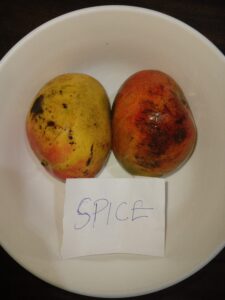Introduction: Nigeria, known for its vibrant culture and diverse culinary traditions, boasts a rich array of seasonal foods that reflect the country’s agricultural abundance. The Nigerian cuisine is deeply rooted in local ingredients and traditional cooking techniques, making it a gastronomic delight for food enthusiasts. In this blog, we’ll embark on a journey through the seasons, exploring the delightful seasonal foods that grace Nigerian tables throughout the year.
- Dry Season: As the dry season sets in, Nigerians embrace a variety of delicious and nutritious foods to combat the heat. Some notable seasonal foods during this time include:
a) Mangoes: Known as the “king of fruits,” mangoes are abundant during the dry season. These juicy and sweet fruits are enjoyed fresh, added to smoothies, or used in savory dishes like mango salsa.
b) African Pear (Ube): Ube, also known as African pear or butter fruit, is a popular seasonal fruit during the dry season. It has a unique taste and texture and is often enjoyed on its own or used in traditional dishes like porridge and soups.
c) Corn: Corn is a staple crop in Nigeria, and during the dry season, it becomes abundant. Roasted corn on the cob, boiled corn, or corn used in various dishes like cornmeal porridge (ogi) and corn fritters (akara), are favorite treats during this time.
- Rainy Season: The rainy season brings relief from the scorching heat and brings forth an abundance of fresh produce. Here are some seasonal foods enjoyed during this time:
a) Okra: Known for its slimy texture and nutritional value, okra thrives during the rainy season. It is a key ingredient in many Nigerian soups and stews, such as okra soup and ogbono soup.
b) Garden Egg: These small, round fruits are similar to eggplants and are abundant during the rainy season. They are commonly used in Nigerian dishes like garden egg sauce and roasted garden egg dip.
c) Watermelon: With its refreshing and hydrating properties, watermelon is a popular fruit during the rainy season. It’s consumed as a standalone fruit, juiced, or included in fruit salads.
- Harmattan Season: Harmattan, characterized by dry and dusty winds, is a unique season in Nigeria. Despite the dryness, this season brings its own share of seasonal delights:
a) Tiger Nuts (Aya): Tiger nuts are small tubers packed with nutrients and enjoyed during the harmattan season. They are often consumed as a snack or used in the production of refreshing tiger nut milk.
b) Dates: Dates are highly prized for their natural sweetness and nutritional value. They are typically enjoyed as a snack or used in baking, especially during the harmattan season.
c) Yams: Yams are a staple crop in Nigeria, and they thrive during the harmattan season. They are used in various traditional dishes like pounded yam, yam porridge, and yam fries.
Conclusion: Nigeria’s seasonal foods offer a wonderful opportunity to explore the country’s culinary heritage and experience the diversity of flavors and textures it has to offer. From the succulent mangoes of the dry season to the earthy yams of the harmattan season, Nigerian cuisine celebrates the abundance of nature in every season. Whether you’re a food enthusiast or an adventurous eater, don’t miss the chance to savor these seasonal delights when visiting Nigeria or exploring Nigerian cuisine at home.





No comments yet, be the first to leave one!